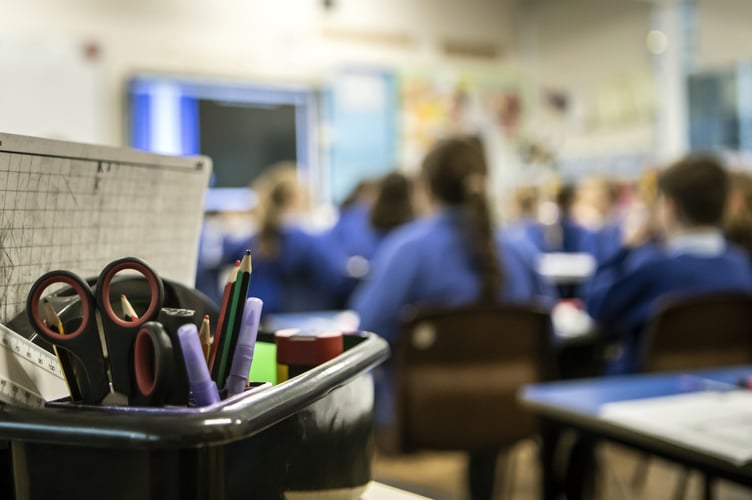The reading skills of the poorest pupils in North Somerset are worse than before the pandemic, new figures show.
The Association of School and College Leaders said the long-term effects of Covid-19 and high rates of child poverty are holding back children's development.
Department for Education figures show 62% of children eligible for free school meals in North Somerset reached the required standard in a national phonics check at the end of the 2023-24 academic year.
This was higher than in 2022-23, when 59% met the standard, but down on pre-pandemic levels in 2018-19, when it was 66%.
Pupils take the phonics screening check at the end of year one, typically aged six. Those who do not meet the expected standard can take it again a year later.
Across England, 68% of pupils eligible for free school meals achieved the required standard last year – up from 66% the year before.
The annual checks were not conducted in 2020 and 2021, but 70% met the standard when they were taken in 2018-19.
Tiffnie Harris, primary specialist at the Association of School and College Leaders, said: "Many young children experienced developmental delays because of the pandemic and this has been compounded by high rates of child poverty.
"Schools are working very hard to support them and are making good progress but as can be seen from the outcomes of the phonics check we are still not back to where we were before the pandemic.
"Primary schools urgently need improved rates of funding, action to address staff shortages and more access to specialist support."
Across all pupils in North Somerset, 83% met the required phonics standard.
It means children eligible for free school meals in the area lagged well behind their peers.
Nationally, 80% of year one children who completed the check met the required standard, with London performing the best at 82% and the North West and North East at the other end of the scale at 79%.
In the South West, 81% of pupils were deemed to have adequate phonics skills last year.
The National Association of Headteachers has called for the check to be made optional, to reduce the number of high-stakes tests children take.
General secretary Paul Whiteman said: "The reality is that this test tells teachers little that they won’t already know through the assessments they make of pupils’ progress every day."
Schools minister Catherine McKinnell said reading is crucial to a child’s development, calling it "the key to unlocking the rest of the curriculum".
"Once again the baked-in inequalities in our education system are clear with only 68% of pupils from disadvantaged backgrounds meeting the standard compared to 84% of their peers, and the gap remaining unchanged from 2023," she added.
"High and rising school standards are at the heart of the Government’s mission to break down barriers to opportunity and ensure where you come from does not determine your future success.
"Our curriculum and assessment review will identify the barriers which hold children back – particularly those from disadvantaged backgrounds – alongside looking at whether the current assessment system can be improved for both young people and staff, while protecting the important role of examinations."


